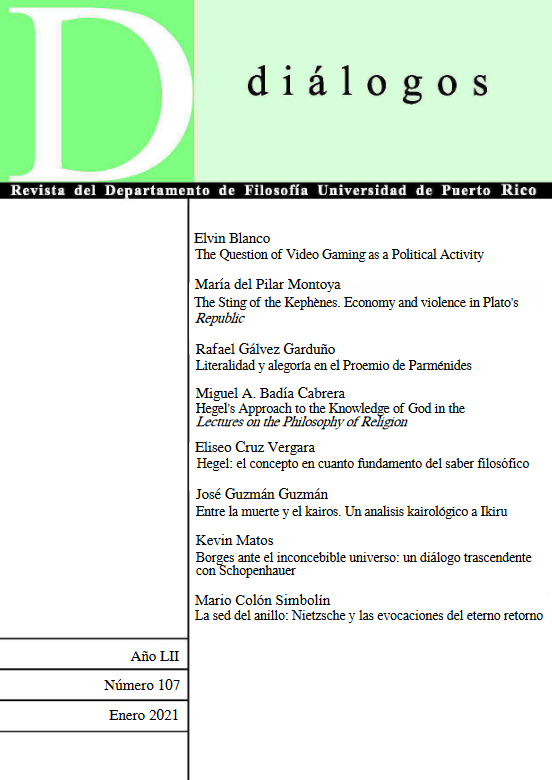Abstract
The principal thesis defended by Hegel is that only the dialectical concept defines the particular knowledge of philosophy. The purpose of this article is to contribute to a more profound understanding of this thesis. I see in the conceptual knowledge proposed by Hegel an adequate model to legitimize a non-positivist mode of knowledge of what we call the cultural and spiritual reality. In order to fulfill this task I will expose and analyze in detail the passages in the Phenomenology of spirit (1807) in which Hegel himself develops and defends his thesis. I will demonstrate specifically that in those passages Hegel wants to show that philosophical conceptual knowledge is different from the explanation mode of the traditional science. Strictly speaking, in opposition to science, philosophy does not explain. It is because philosophy is anything but explanatory that it can contribute to the knowledge of the spiritual reality. Certainly the thesis defended by Hegel is backed by his idealistic position. But I myself feel inclined to the partial defense of his idealism in so far it is the fundament for a non-positivist and explanatory model of knowledge. I will finally claim that the traditional materialistic criticism against Hegel‘s idealism fails to see the positive aspects of his position.

This work is licensed under a Creative Commons Attribution-NonCommercial 4.0 International License.

